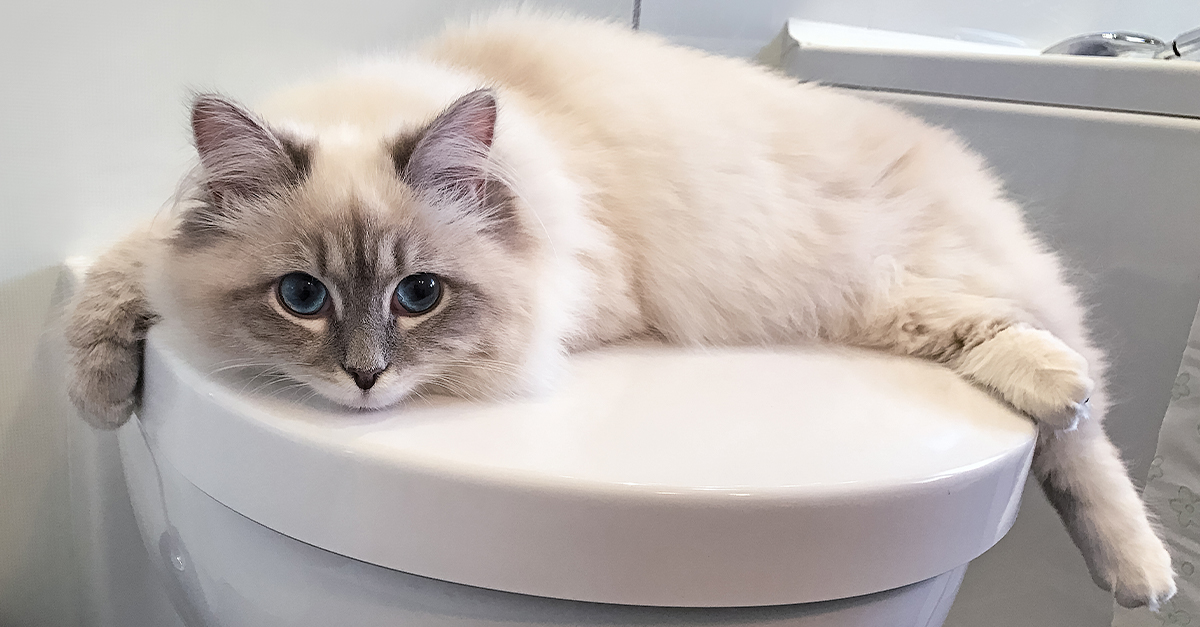Why You Shouldn't Flush Cat Poop Down Your Toilet - Preserve Your Plumbing System
Why You Shouldn't Flush Cat Poop Down Your Toilet - Preserve Your Plumbing System
Blog Article
This post following next about Don’t flush cat feces down the toilet is immensely enlightening. Read it for your own benefit and see what you think of it.

Introduction
As feline proprietors, it's vital to bear in mind exactly how we throw away our feline close friends' waste. While it might seem convenient to flush cat poop down the commode, this practice can have detrimental repercussions for both the atmosphere and human health and wellness.
Ecological Impact
Flushing cat poop introduces damaging microorganisms and bloodsuckers right into the water system, positioning a significant risk to aquatic communities. These contaminants can negatively impact aquatic life and concession water high quality.
Health and wellness Risks
In addition to environmental concerns, purging feline waste can also posture wellness risks to people. Feline feces may contain Toxoplasma gondii, a bloodsucker that can create toxoplasmosis-- a possibly serious disease, particularly for pregnant females and individuals with damaged immune systems.
Alternatives to Flushing
Thankfully, there are safer and more liable methods to deal with feline poop. Consider the adhering to options:
1. Scoop and Dispose in Trash
One of the most usual technique of getting rid of cat poop is to scoop it right into a naturally degradable bag and throw it in the garbage. Make certain to utilize a dedicated trash scoop and dispose of the waste without delay.
2. Usage Biodegradable Litter
Choose eco-friendly cat clutter made from products such as corn or wheat. These trashes are environmentally friendly and can be safely dealt with in the trash.
3. Bury in the Yard
If you have a yard, think about burying pet cat waste in an assigned location away from veggie gardens and water resources. Make sure to dig deep adequate to avoid contamination of groundwater.
4. Mount a Pet Waste Disposal System
Purchase a pet waste disposal system especially designed for pet cat waste. These systems make use of enzymes to break down the waste, minimizing smell and environmental influence.
Final thought
Liable pet possession expands beyond offering food and sanctuary-- it also includes correct waste administration. By refraining from purging cat poop down the bathroom and opting for alternative disposal approaches, we can minimize our environmental impact and shield human health and wellness.
Why You Should Never Flush Cat Poop Down the Toilet
A rose by any other name might smell as sweet, but not all poop is created equal. Toilets, and our sewage systems, are designed for human excrement, not animal waste. It might seem like it couldn’t hurt to toss cat feces into the loo, but it’s not a good idea to flush cat poop in the toilet.
First and foremost, assuming your cat uses a litter box, any waste is going to have litter on it. And even the smallest amount of litter can wreak havoc on plumbing.
Over time, small amounts build up, filling up your septic system. Most litter sold today is clumping; it is made from a type of clay that hardens when it gets wet. Ever tried to scrape old clumps from the bottom of a litter box? You know just how cement-hard it can get!
Now imagine just a small clump of that stuck in your pipes. A simple de-clogger like Drano isn’t going to cut it. And that means it’s going to cost you big time to fix it.
Parasitic Contamination
Believe it or not, your healthy kitty may be harboring a nasty parasite. Only cats excrete Toxoplasma in their feces. Yet it rarely causes serious health issues in the cats that are infected. Most people will be fine too if infected. Only pregnant women and people with compromised immune systems are at risk. (If you’ve ever heard how women who are expecting are excused from litter cleaning duty, Toxoplasma is why.)
But other animals may have a problem if infected with the parasite. And human water treatment systems aren’t designed to handle it. As a result, the systems don’t remove the parasite before discharging wastewater into local waterways. Fish, shellfish, and other marine life — otters in particular — are susceptible to toxoplasma. If exposed, most will end up with brain damage and many will die.
Depending on the species of fish, they may end up on someone’s fish hook and, ultimately on someone’s dinner plate. If that someone has a chronic illness, they’re at risk.
Skip the Toilet Training
We know there are folks out there who like to toilet train their cats. And we give them props, it takes a lot of work. But thanks to the toxoplasma, it’s not a good idea.

I have been very occupied with Don’t flush cat feces down the toilet and I'm hoping you enjoyed reading the entire article. Are you aware of somebody else who is involved in the subject? Why not share it. Kudos for your time. Kindly visit our blog back soon.
Call Today Report this page